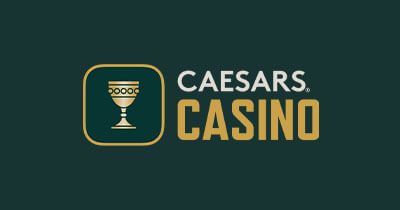When to Split Pairs in Blackjack
Know When to Split to Increase Your Odds in BlackjackSplitting Pairs is important for beginning, intermediate, and advanced BlackJack strategy. Our definitive guide takes you through all the best and worse scenarios.
What feels better than beating the dealer?
Beating the dealer twice!
One of the most confusing topics in BlackJack strategy is knowing when to split pairs. There are some times when you’d be a fool not to split, times you’d be a fool to split, and times when it’s statistically a good bet.
While beginners tend not to split, we’re giving you some rules that you should begin playing with immediately. A lot of advanced players are still making some dumb splits, and we’re here to address that as well.
With this strategy guide, we begin with the most likely cards – 10-valued cards – and build your strategy for splitting around that. While no strategy guide is fool-proof, these tactics are statistically strong. Jump in to learn to minimize your losses and maximize your wins.
Most Important Strategy: Likelihood of 10s
The most important thing to bear in mind with BlackJack strategy is the likelihood of a 10-valued card. Statistically, a card valued at 10 is the most likely in the deck. There are:
- 4 10s
- 4 Jacks
- 4 Queens
- 4 Kings
So if you’re dealing with a full deck, 16 out of those 52 cards are likely to be valued at 10 (or 4 out of every 13). These aren’t amazing odds in themselves, but every other card has a chance of 4 in 52, or 1 in 13 (including aces).
You have the added advantage that one of the non-10-valued cards, the Ace, is doubly advantageous for you. It can act as an 11, which gives you blackjack if you’re holding 10, or it can act as 1 if you’re already high. So in most scenarios following your first card, if neither you nor the dealer has a 10-valued card or Ace, 20 of the remaining 49 cards will be a 10-value or Ace.
Of course, this is all based on a single deck. You may find a single-deck table at a casino, though it’s unlikely. If you do, saddle up! – odds are good. More likely is that you’ll be playing at a table with 6-8 decks, making the predictability far more difficult.
But even if you’re playing with “infinite” decks, as in online BlackJack, you’re still statistically more likely to draw a card with a 10 value, so this is the best strategy to adopt.
With this fundamental principle in mind, much of what we have to say in the following should make more sense. If you’re holding 9, you are more likely to draw a 10 card, which would give you a rather strong hand of 19. If you already have a rather high hand, that same probability should warn you against busting (i.e., going over 21).
Splitting strategy when you’re dealt a pair 10s
Let’s start with something easy. If you’re dealt one 10, then another, you stay. If you could know the future and be sure that you’d be dealt two aces, then you’d have double 21s, which would be great. (As a side note, splitting aces gives you 21, but not BlackJack. So you won’t get that BlackJack payout.) If you don’t have super-human powers, stick with that 20, which is just about as good as it gets.
If you’re a beginner or advanced, this is a very statistically-sound rule. If you veer from it, odds are really not in your favor.
So when do you split?
When to Split in BlackJack
You are allowed to split any time you are holding same-valued cards (e.g., two 4s or a 10 and Q (both worth 10 points)). Doing so allows you to play two hands. But there are times when it is smarter to split than others.
Why don’t you Split if dealt pair of 9s and Dealer holds 7, 9, 10-value, or A?
Two 9’s gives you 18, which is already a strong hand, so think before you split that.
Usually, when you’re dealt a pair of 9s, you split, but why not when the dealer is holding a 7, 10, or A? If the dealer is holding a 7 and you have two 9s, statistically it’s likely that the dealer will draw a 10. This gives her 17, and she’ll have to stick on a hard 17, so your 18 wins.
If the dealer is holding a 9, 10, or A, they are statistically more likely to beat you. That is, if they draw one of those 10-valued cards, they get 19, 20, or BlackJack, and all of those beat you. If you split those 9s, you have to put more money down for that split. You stand to lose here, so it’s best to count your losses (and maybe Surrender).
So, if the dealer has 7, you’re probably going to win without splitting. If the dealer has 9, 10-value, or ace, you’re statistically likely to lose, so don’t lose more!
Should you surrender against the dealer’s Ace?
While we’re not going too deep into strategy of when to surrender here, but this situation is worth a quick look. If the dealer has an ace and you don’t have anything strong, it’s better to walk away with half your money than lose all. All 16 10-value cards would give the dealer BlackJack if she has an ace. The other two 9s, and any of four 8s gives the dealer a win over you.
If dealt 9, split if Dealer has a weak 2-6, 8, or J-K
In light of the strategy above, we can understand why we would split if the dealer is holding a weak 2-6 or an 8. In the 2-6, if the dealer draws a 10-value, they’ll only get 12-16 and have to hit again, with a higher chance of busting. If you split your 9, you’re in a very good position to get a strong 19, which the dealer may likely go bust trying to beat.
On the other hand, if the dealer has 8 and gets a 10, they’ll tie you at 18. That would tie you if you don’t split. But if you do, you have 2 cards in play (i.e., two 9s) that would beat that 8 in the event that all 3 get a 10-value card. So odds are in your favor to win, so why not win twice?
An important consideration when splitting 9s
When splitting 9s, it’s important to bear in mind that you’re splitting a hand that’s already quite strong (at 18), and trying to beat it will likely cause the dealer to bust. By splitting according to this strategy, you stand to win bigger, but you’re tossing a strong hand.
It might not be the best move to make if you’re beginning with BlackJack and don’t yet have a strong sense of the other players’ and dealer’s cards in addition to your own. You might want to stick with that 18 and then watch would have happened if you did split as the following cards are dealt.
Always split pairs of Aces
After the shaky ground of splitting 9s, it’s good to have one clear guideline: always split on pairs of Aces. For one, you’re only holding a soft 2 or 12, neither of which will do anything for you without hitting. But splitting gives you 2 chances at a 10-value card for 21. Or you have that mobility of switching both aces between a value of 1 and 11, which gives you a lot of versatility.
Never split pairs of 5s
In the same way, holding a pair of 5s is a no-brainer: hit! Statistically, you’re likely to get a 10-valued card, which would give you a super strong 20. (This is similar to the example above of holding a pair of 10s.) But by splitting, that same 10 would give you 15. You then take another hit and risk busting. Don’t split a pair of 5s!
Advanced BlackJack Splitting Strategy
The strategies above are the most statistically-valid guidelines for when to split in BlackJack. That is obviously not to say that you will always win if you follow them. What you are trying to do with BlackJack, as with any casino game, is to minimize that house advantage, and it’s no easy task.
There are some rules that are safe from beginners to advanced players. Always split on Aces. Never split on 10s, unless you 1) have x-ray vision or 2) want to make a charitable donation to the casino.
It is important to remember that your goal is not to get BlackJack, 20, or 18. Your goal is not to lose. In other words, you want to beat the dealer; don’t be distracted from that.
As you keep that guideline in mind and the above strategies, then you need to open yourself up not only to your hand and what may happen. Advanced players have a wider focus upon what has happened in the past and also what cards other players are holding and have just held. This is not card counting, which is difficult to manage and a quick way out of a casino. But if you can notice the current hands and remember the immediate past hand, you already give yourself a huge advantage.
If you trust your statistics and are able to play well against the dealer’s hand, you may want to bet from your bankroll in proportion to the safety of your hand. In other words, when might you want to double down after splitting (if your table allows you to do that)?




